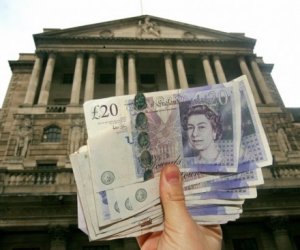In an unexpected and surprising move, the Bank of England (BoE) recently stopped buying bonds that have a 2017 maturity date with a coupon of 8.75pc, after bond dealers rose the price to more than 140 pounds before Monday’s auction. This marks the first time such an occurrence has happened, as the BoE has never stopped buying government bonds in a reverse auction – a sale in which market makers/traders sell gold certificates (gilts) to the Bank of England.
In a recently released statement, BoE said that it has “decided to reject all offers” related to government bonds that mature in 2017, after significant yield changes that were caused by heightened bond prices took place prior to Monday’s auction. According to a source’s statement given to the London Telegraph, the price of 2017 government bonds “behaved very strangely” in comparison with similar gilts being bought by the Bank of England on the same day.
Some speculate that the seemingly unjustifiable raise in price and a small group of bonds caused the Bank of England to stop buying buying them, thereby halting an aspect of its current quantitative easing (QE) program that is designed to stimulate the economy and alleviate some of the pressures caused by the current debt crisis.
According to a statement given to Bloomberg by Bank of America/Merrill Lynch strategist, John Wraith, traders begun increasing the price of 2017 government bonds “aggressively,” with obvious intentions to “sell it to the bank of England.” Wraith also stated that the Bank of England’s rejection of the 2017 bond may have been a “bit of a shock” to profit-motivated traders that have hoped the financial institution would be okay with paying arbitrarily hiked prices for government bonds.



